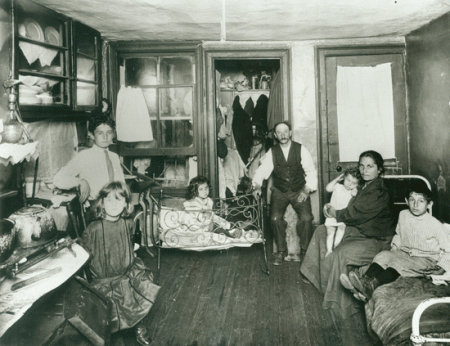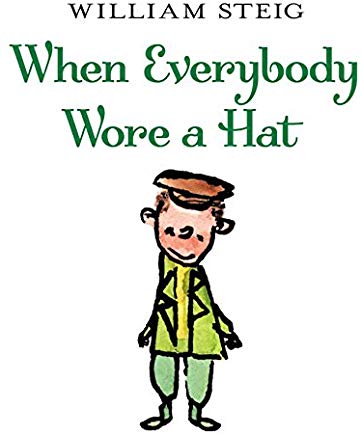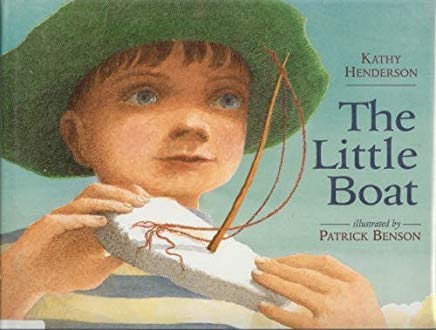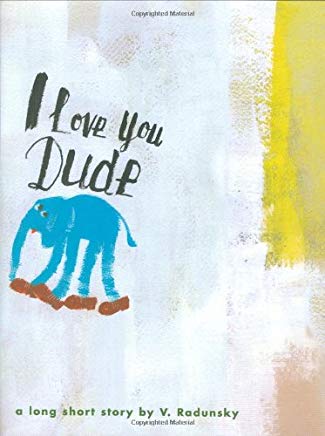The Blog
Blog Entry
Small Comfort

One of the consolations I am accustomed to hearing, and offering, about the very small apartment in which all of the members of my family sleep, eat, dress, work and attempt to entertain themselves, often at cross-purposes – one of the arguments against all of this permanent damage we are conceivably inflicting on our children relies heavily on the notion that everything seems much bigger when you’re a kid. Remember?
I was furthermore comforted recently to reread William Steig’s valedictory When Everybody Wore a Hat about the eight-year-old burgeoning storyteller growing up in the Bronx, climbing trees, watching two movies for a nickel (a “Nickelette”), accompanying his mother to the butcher, getting his haircut, having his picture taken on a horse, and dreaming of life as a seaman – but mostly there were the bits about living in an apartment where “it was impossible to be alone,” his parents quarreling in four languages and fighting with radiators, everyone seeing each other cry.
This book was written in 2003 when the author was ninety-five, and it looks nothing like the wandering epics of Amos & Boris or Doctor De Soto Goes to Africa or anything else this grizzled adventurer ever attempted: he’s home. Odysseus finally returned and reflective in Ithaca. The old man still a boy, no matter the mileage. Really, if you cannot be moved by the quiet magnificence of this journey back to its modest beginning then you probably had part of your soul blown off in “The Transformer Movie.”
This story – of living in a very small corner of a very big world – doesn’t need a lot of dressing up, in fact there is probably no better purpose to which to apply the inherent simplicity of a picture book; what a shame to ever squander the opportunity.
It happens of course, as often as not for trying to to wring some kind of lesson from life’s relentlessness which makes it more predictable. This is a comfort, believably. Yet why waste all the money on these books, or the trips to the library, or the blotting cubic footage in our homes, if we did not wish to be a little surprised every time we revisited? You could read Maira Kalman’s Next Stop Grand Central a dozen times and hardly remember half of the seemingly insignificant jobs and personalities and emergencies it requires to make that vast meeting-place hum with a purpose.
Here’s to the squirts: to the brave young doodle of the title in Vladimir Radunsky’s I Love You Dude seen racing and escaping from one unsatisfactory situation to another: a mug next to others in a shop window (“I Love NY” reads one. “I Love Mom.” “I Love Lucy.”), a movie billboard, the beach (where he considers life as a tattoo on somebody’s big tan belly), a circus poster, and finally a museum, between a Picasso and a Matisse. Dude’s entire evolution feels like is a lark, a whim, and maybe (not incidentally) the difference between graffiti and great works of art.
To Kathy Henderson’s The Little Boat featuring – in turns – spectacular nautical panoramas and modest pencil sketches by Patrick Benson. Here is the story of an “old piece of broken styrofoam with a stick for a mast and a string tail sail” and all it encounters on its journey across the ocean – past dinghys, a tugboat and giant tanker “as high as a house and as long as a road,” through the doldrums of the open sea (“not a leaf, not a bird, not a sound”) and skyscraping storms, then dragged by a predatory fish to the deepest bottoms of the ocean. Still, everything floats back to the surface eventually, and reaches some other side, in this case, somewhere in the Caribbean it looks like – far, yet not really. There’s never a period in all of this eventfulness, but it works, like poetry without the high-mindedness, and the result is in every way seamless and accessible, even for the youngest of readers, even if they’ve never ventured outside of their neighborhood.
I was reminded of The Little Boat recently when everyone suddenly discovered the existence of a country called Haiti, but it’s always been there, only seven hundred miles from South Beach, enslaved, denuded, abandoned by colonists, bullied by dictators – yeah, I know, we can’t rescue the whole world, though it probably wouldn’t hurt to acknowledge its existence before we pretend to even make a decision. Maybe happiness runs in circular motions, but earthquakes tend to happen before we can make a fable out of them, or write a boring song. Thirty, forty years from now I have no idea where I’ll end up – somewhere roomier, I hope, where I don’t need to listen to other people’s arguments or ring tones – though I hope it’s a story that does not rely on any goodness to make it good.




